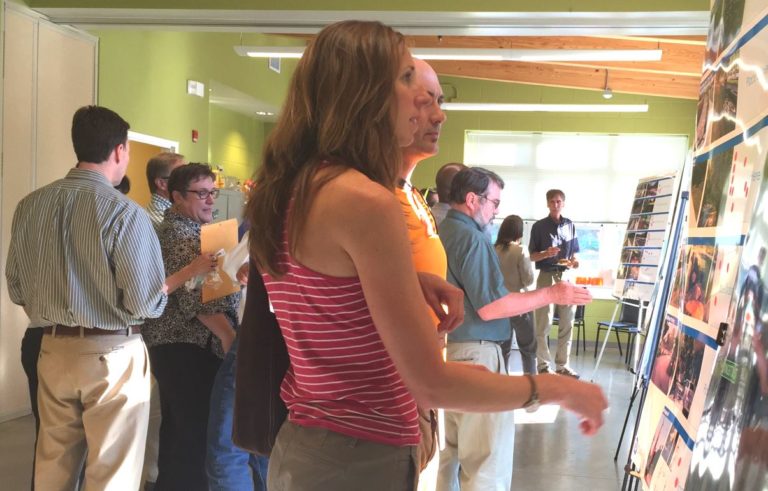The City’s Zero Waste AVL survey about waste reduction strategies has just concluded. Thank you to the 1,100 citizens who participated, answering questions about their preferences going forward to reduce the waste stream Asheville’s citizens and businesses generate.
The initiative continues with two informational meetings coming up, where people can hear presentations about the options under consideration. Those meetings are set for 5:30 p.m. Oct. 1 and noon Oct. 2 in the City’s Public Works Building, 161 S. Charlotte St. The meetings will be held in the large conference rooms A-109 and A-111. Feel free to bring your lunch to the noon meeting Oct. 2.
These informational meetings will not only feature staff presentations but also have stations where people can learn more about the City’s waste reduction goals, national trends and attitudes and acceptance about changing methods of collection. Although citizens have already given input through the survey, some stations will include feedback cards where people can write down their comments.
The City of Asheville already has a great participation rate of recycling by its residents. Some 82% of Asheville households are recycling! That compares to a national average of between 30-40%. But there’s more work to do to reduce the waste stream.
“Staff is seeking ways to explore waste reduction strategies based on a 2014 City Council Resolution 14-27, which states that we as a city will reduce our waste by 50 percent by 2035,” said Amber Weaver, the City’s Chief Sustainability Officer.
One way to do that is to further divert items entering the trash stream. “When examining waste reduction strategies, we know that trash organics and recyclables are represented in the waste stream,” said Weaver.
The last City audit of items found in trash, not recycle bins, found:
18% recyclables
26% organics
56% remaining was trash
New methods under consideration
One of the measures under consideration is called pay-as-you-throw. Known as PAYT, residents are charged for the collection of municipal solid waste — ordinary household trash — based on the amount they throw away. It creates an economic incentive for citizens to recycle more and generate less solid waste that goes into the landfill.
Communities utilizing PAYT systems charge residents for municipal solid waste services based on the waste they generate by a bag-based method or a cart-based method.
In February 2015, the City’s Sustainability Advisory Committee on Energy and the Environment (SACEE) sent a letter City Council’s Planning & Economic Development Committee recommending the City approve a pay-as-you-throw model for residential solid waste management. So PAYT models were included in the waste reduction strategies citizen survey.
Another method that could be employed is municipal collection of organics, in other words compostable kitchen scraps.
There is also a recycling pilot project under way in three Southside public housing communities, with the idea that it could be expanded to others. Staff are researching the feasibility of other waste reduction strategies as well, including what it would take to add recycling to apartment communities.
Find out more about on the City’s Zero Waste AVL page.
Next steps after the informational meetings
Before any changes would be implemented in Asheville’s sanitation services, staff recommendations would go both to the City’s Planning & Economic Development Committee and Finance Committee. Based on their recommendations, changes could be enacted by a City Council vote.
In its usual protocol, before the vote City Council would have a public hearing where citizens can comment on any action slated for a vote.
If you have questions or want to make a comment about this initiative, email zerowasteavl@ashevillenc.gov. Or call Chief Sustainability Officer Amber Weaver at 828-271-6141.
